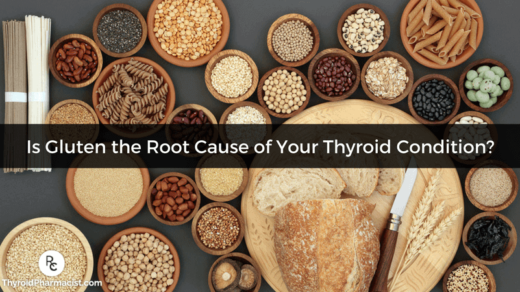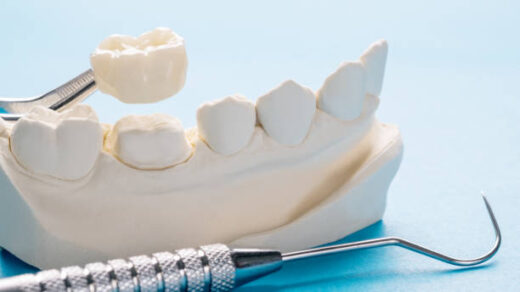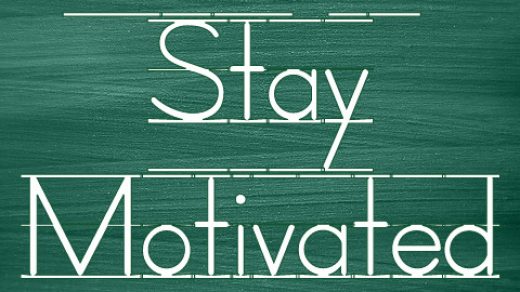Many of my readers have reported some of the following symptoms: brittle or white-spotted nails, a tendency to get sick easily, allergies, frequent respiratory infections, an impaired sense of taste and smell, diarrhea, hair loss, impotence, loss of appetite, skin issues, depression, and impaired vision. Are you one of them?
Figuring out the root causes of your Hashimoto’s-related symptoms can be challenging and overwhelming. After all, many symptoms overlap with several other conditions. But, the origin of these symptoms doesn’t have to be a mystery. Often, these symptoms stem from a deficiency in an essential trace element: zinc.
One in four individuals in the general population may be zinc deficient, including most people with hypothyroidism and Hashimoto’s. Furthermore, an estimated 17 percent of the worldwide population is at risk of inadequate zinc intake.
Zinc is involved as a catalyst in many different pathways in the body. It’s also very important for gut health, immune function, tissue healing, the conversion of T4 to T3, and the production of TSH. Zinc can help tighten the intestinal junctions of those with intestinal permeability as well. For this reason, increasing your zinc levels may help reduce your symptoms and even lead you towards remission from Hashimoto’s!
In the following article, you’ll discover:
- The symptoms and causes of zinc deficiency
- How low zinc levels affect Hashimoto’s
- Strategies to optimize your zinc intake
- How to safely supplement with zinc
What is Zinc?
When you hear the word “zinc,” you may think of the shiny silver metal found in metal alloys. Zinc is also considered an essential trace element, which means that it is not something that the body can make on its own, yet small amounts are important to our well-being. After all, it acts as a catalyst in about a hundred different enzyme reactions required by our body, and is involved in DNA synthesis, protein synthesis, the maintenance of good eyesight, and cell division.
Adequate levels of zinc are required for proper sense of taste and smell, detoxification, and wound healing. It’s also needed for a healthy appetite. Studies have used zinc in doses of about 5 mg, in failure to thrive babies as young as six months with poor appetite, to boost their appetite. Compared to those who were given a placebo, the babies who were given zinc supplements seemed to gain more weight. The studies concluded that mild zinc deficiency may be a factor in nutritional failure to thrive during infancy.
Zinc supplementation helped my sweet little Dimitry with his appetite. Before we had moved to California, we lived in Boulder, Colorado (which is in the mountains), and zinc is often depleted in people living at high altitudes. We found that Dimitry required less zinc supplementation (or none at all) when we had visited California.
An integrative physician based out of Boulder, who has now retired, told me that just about every person in Boulder he had worked with had a zinc and copper imbalance! (Copper toxicity is a common trigger for Hashimoto’s — I’ve written about it in my book Hashimoto’s Protocol, but have not had a chance to write an article on it yet!)
Of note to those of us with Hashimoto’s, zinc plays a specific role in gut health. In fact, zinc deficiency has been associated with increased intestinal permeability, which contributes to Hashimoto’s. Replenishing zinc has been shown to help tighten the intestinal walls and repair intestinal permeability in other conditions such as Crohn’s disease.
In addition, zinc helps to prevent oxidative stress, which could otherwise knock your body’s antioxidant levels out of balance and damage your DNA.
Another incredible benefit of zinc is that it plays a vital role in immune function. A deficiency in this essential mineral is associated with increased susceptibility to infections (another common trigger of Hashimoto’s), as well as reduced detoxification of bacterial toxins; while optimized zinc levels can help fight infections by balancing the immune system’s response.
In 2012, a study was conducted to see the effect of zinc on the treatment of the common cold. Some adverse reactions — namely nausea and an unpleasant taste — were reported. (Given that symptoms of zinc overdose can include nausea and a metallic taste in the mouth, it’s possible that those who experienced adverse reactions had excess levels of zinc.) Nonetheless, compared to those who were given a placebo, adults who were given a zinc supplement experienced a shorter duration of cold symptoms.
Another study involving the administration of various zinc lozenges containing over 75 mg of elemental zinc, found that zinc acetate lozenges shortened the length of colds by 40 percent, while lozenges containing zinc gluconate shortened colds by 28 percent. Yet another study found that when taken 24 hours within the first onset of cold symptoms, zinc syrup can reduce the duration and severity of a cold in healthy people!
In addition to being potentially helpful for colds, zinc may also be helpful in warding off other viral infections. One 2012 study that involved using zinc oxide against Herpes simplex virus type-2 (HSV-2), found that zinc may inhibit the entry of the HSV-2 virus into target cells, as well as potentially stop the spread of the virus among already infected cells. I encourage you to do a search for the effect of zinc on other infections you may have questions about in PubMed.
Other researchers have discovered that zinc can inhibit the replication of rhinovirus cells, as well as display antiviral activity against other respiratory viruses (including respiratory syncytial virus).
Zinc and Hashimoto’s
Zinc is also an essential element for thyroid function.
A depletion in zinc prevents the conversion of the T4 hormone into the active T3 version. This could lead to symptoms like hair loss, fatigue, and weight gain, even while taking thyroid medications like Synthroid. (You can read more about the effects of insufficient T3 levels here.)
Zinc is also needed to form TSH, which is why those with hypothyroidism and who are constantly producing TSH, are more likely to develop deficiencies in this important mineral.
When taken with selenium (another nutrient that has been proven to be beneficial for those with Hashimoto’s), zinc has been shown to improve thyroid function.
In 2015, a study was conducted with 68 overweight or obese female hypothyroid patients who received either a zinc supplement, a selenium supplement, placebo pills, or both zinc and selenium supplements taken together. Three months later, it was noted that those taking both zinc and selenium, as well as those just taking zinc supplements, saw a significant increase in their free T3 levels. Those taking both zinc and selenium experienced a significant decrease in their TSH and an increase in T4 levels. The study concluded that zinc, when taken alone as well as in combination with selenium, can have a positive effect on thyroid function in overweight or obese patients with hypothyroidism.
The benefits of zinc supplementation in thyroid patients were also confirmed when I surveyed over 2,000 of my readers and asked them what interventions worked for them. Fifty-two percent of them said taking a daily dose of 30 mg of zinc made them feel better. Fifty-eight percent said they saw an improvement in energy, 48 percent in their mood, 30 percent in their lab results, and 25 percent in skin changes.
Symptoms of Zinc Deficiency
Symptoms of zinc deficiency can include poor wound healing, impaired taste and smell, and thin, brittle, peeling, or white-spotted nails.
Those low in zinc may also have a weakened immune system and suffer from allergies, or be more susceptible to frequent colds and respiratory infections.
Furthermore, depleted zinc levels can result in diarrhea, hair loss, impotence, loss of appetite, skin issues (acne, rashes, canker sores, foot fungus), depression, impaired vision, low sperm count, ADHD, unexplained weight loss, a lack of alertness, and open sores on the skin.
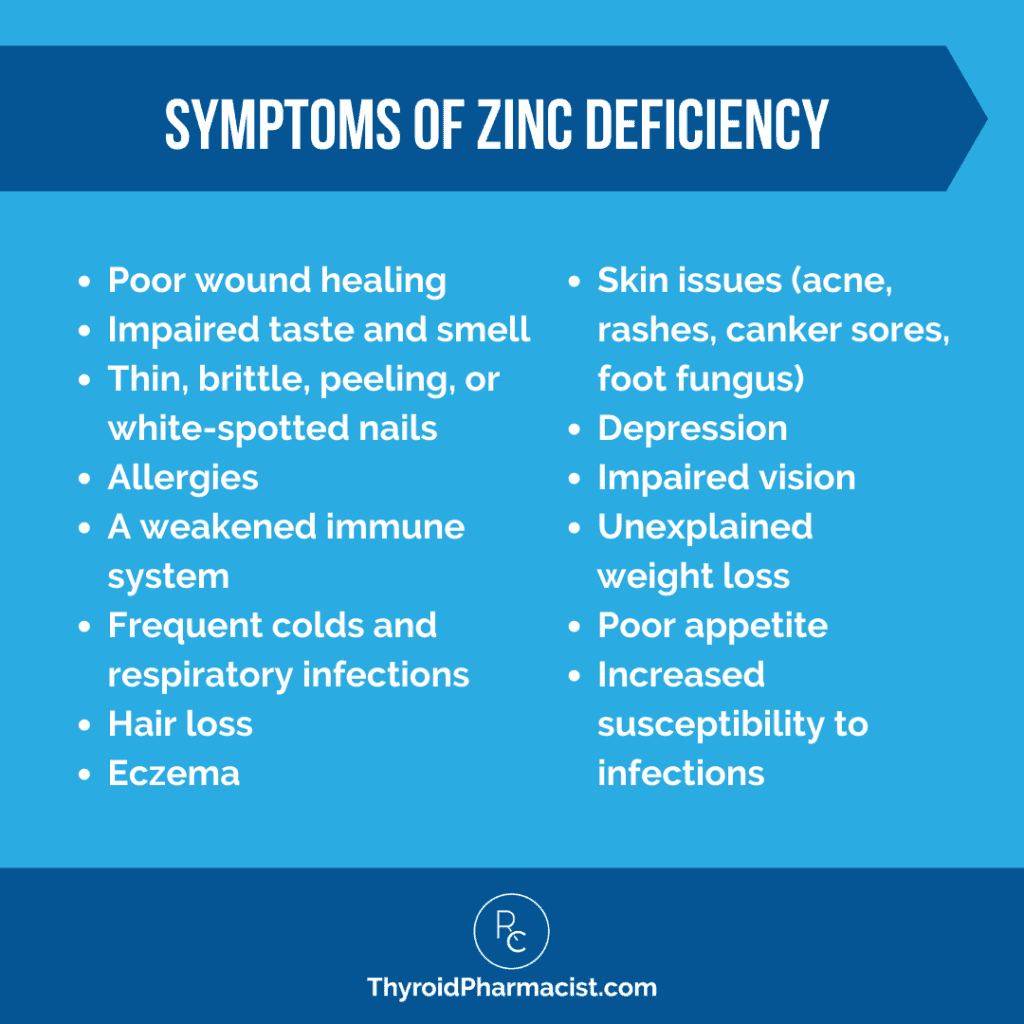
As I mentioned earlier, one in four individuals in the general population may be zinc deficient, and your chances increase if you have hypothyroidism or Hashimoto’s. Interestingly, in 2013, a study involving rats with induced hypothyroidism found that hypothyroidism led to changes in their serum zinc levels, suggesting that hypothyroidism also contributes to lower zinc levels (likely due to impaired digestion).
Could you be at risk? I’ve created a handy Zinc Screen to help you determine whether or not you may be at risk for zinc deficiency. Give yourself one point for every symptom you have, then count up your total score:
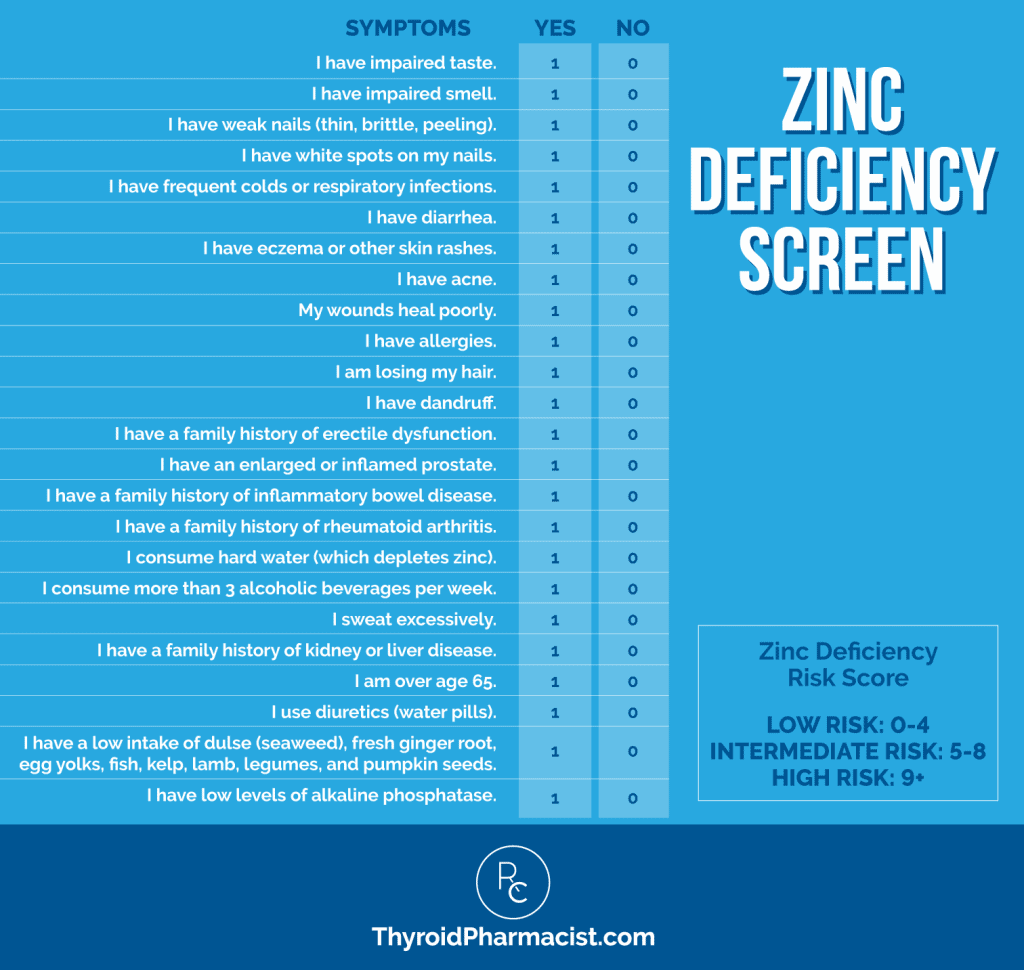
Causes of Zinc Deficiency
It’s important to be familiar with the many other factors that can deplete one’s zinc levels, many of which are common co-occurring conditions in those with Hashimoto’s. Possible causes of zinc depletion aside from having Hashimoto’s include:
- Celiac disease and malabsorption syndromes: The absorption of zinc may be impaired by intestinal damage due to conditions such as celiac disease (which is common in about 20 percent of those with Hashimoto’s), as well as other malabsorption syndromes.
- Phytate-rich foods: Phytates found in grains, legumes, nuts, and seeds, are compounds that can bind zinc and prevent its absorption when they are eaten alongside zinc-containing foods.
- Iron supplements: Taking iron supplements in conjunction with meals may also prevent the absorption of zinc from food.
- Low stomach acid: A lack of stomach acid, which is common in those with Hashimoto’s, can prevent one’s absorption of zinc, as well as other nutrients.
- High cortisol levels or excessive cortisol production: Zinc can become depleted with excessive cortisol production, which is associated with increased levels of stress, as well as adrenal dysfunction.
- Certain diets: Many diets, including vegan, gluten-free, Paleo, low-fat, high-protein, lactose-free, low-carb, low-sodium, and Standard American Diets, may incorporate less zinc-rich foods.
- Alcoholism: Excessive alcohol consumption has been linked to poor zinc absorption.
- Medications: Certain medications, like synthetic estrogen and progesterone (found in birth control pills, which can rob us of our health), acid-blocking medications like proton pump inhibitors (ie. Prilosec, Nexium, Omeprazole, and other purple pills), and H2 receptor blockers such as Pepcid or famotidine, can deplete zinc levels.
- Pyroluria and social anxiety: Pyroluria, also known as Mauve Factor or Pyrrole Disorder, is a genetic abnormality in which one produces an unusually high number of hydroxyhemopyrrolin-2-one (HPL) in their body. Pyroluria can cause shyness, introversion, and symptoms related to anxiousness and shyness, including social anxiety. Other classic symptoms include morning nausea or lack of appetite, poor dream recall, strange dreams or nightmares, depression, and a puffy, swollen face. It can be diagnosed by testing for pyrroles present in urine samples. The current scientific literature shows that HPL binds to vitamin B6 and zinc, resulting in the excretion of these nutrients via the urine, in large amounts. As such, this condition has been linked to zinc deficiency and a greater need for supplementation. In fact, certified nutritionist Trudy Scott believes addressing zinc along with vitamin B6 deficiencies can prevent pyroluria and social anxiety. (You can find out more about pyroluria on her website, and in her book, The Antianxiety Food Solution.)
- Abnormal eating disorders: Research has associated zinc deficiency with reduced food consumption. Studies have suggested that increasing one’s zinc levels may benefit those with anorexia nervosa, by correcting abnormalities in gamma-Aminobutyric acid (GABA) neurotransmitters and the amygdala, which are abnormal in anorexic individuals. Its effects on bulimia nervosa have also been reported, but research is currently scarce.
- Chronic fatigue syndrome: Researchers have found that zinc levels were lower in those with chronic fatigue syndrome. Other studies have shown that zinc can be lowered by the presence of increased levels of pro-inflammatory cytokines such as IL-6.
- Living at high altitudes: Zinc is often depleted in people who live at high altitudes. This is because high altitudes can induce hypoxic stress (which involves a lack of oxygen reaching the body’s tissues and organs) on one’s zinc and alkaline phosphatase levels. However, circulating levels of copper in plasma did not change. Thus, the study concluded that those living at high altitudes may have lower levels of zinc, but may not require extra supplementation of copper.
If you have a history of any of the above conditions, you may be at risk of having a zinc deficiency.
Testing for Zinc Deficiency
Testing for zinc can be done through a standard blood test ordered by your practitioner. However, it’s important to note that some blood tests may not be accurate, as they do not indicate the level of cellular zinc. Additionally, signs and symptoms of zinc deficiency can be present, despite having normal lab results.
Taking a liver function blood test can help identify a zinc deficiency, which will present as low alkaline phosphatase (ALP) levels. (The optimal range for this enzyme is 70 to 90 IU/L). I recommend self-ordering an ALP test from Ulta Lab Tests. (The Comprehensive Metabolic Panel by Ulta Lab Tests can also check your alkaline phosphatase levels, as well as other markers related to liver health.)
Advanced testing for vitamin and mineral deficiencies can also be done to help determine your body’s zinc levels. The SpectraCell Laboratories Micronutrient Test is a great option to consider, as it will check for multiple other nutrient deficiencies as well, including vitamin A, vitamin B1, vitamin B2, vitamin B3, vitamin B6, vitamin B12, biotin, folate, vitamin C, vitamin D, vitamin K, calcium, magnesium, manganese, copper, selenium, and vitamin E.
(Interested in learning about other common nutrient deficiencies in those with Hashimoto’s? Check out my article on the most common nutrient depletions found in Hashimoto’s. You can also download my FREE eBook, Supplements to Subdue Symptoms.)
Optimizing Zinc Levels
To optimize zinc levels, we can increase our intake with zinc-rich foods and helpful supplements.
Dietary Sources of Zinc
Zinc can be found in food. Oysters have the highest concentration of zinc, but they are not typically eaten every day. Beef (especially beef liver), pork, lobster, and chicken are the next richest dietary sources of zinc, as it is easier to extract zinc from meat than from non-meat sources. (This explains why vegetarians and vegans also have an increased risk of zinc deficiency.)
Avoiding the consumption of alcohol, refined sugar, white flour, rice, and oxalate-rich foods, which are zinc-depleting foods, may also help you with zinc extraction.
Nonetheless, since zinc is not stored in the body, those with zinc deficiency, Hashimoto’s, and other autoimmune conditions may want to consider zinc supplementation as part of their everyday regimen.
Supplements
Over 52 percent of my surveyed readers reported feeling better after starting zinc supplementation.
However, I don’t like recommending one-a-day-type multi-vitamins because they don’t consider how the vitamins interact with one another.
For example, vitamin C taken with iron improves the absorption of iron, while iron taken with zinc decreases the absorption of zinc. Thus, providing just the recommended dietary allowance (RDA) of zinc when only 50 percent of it will be absorbed, is not effective in overcoming a severe zinc deficiency. (Some vitamins and minerals need to be taken with food to promote absorption; others, on an empty stomach.)
Additionally, not all supplemental zinc formulations are created equally. I prefer the zinc picolinate version, such as the one made by Pure Encapsulations, because of its improved absorption profile compared to other forms.
I usually recommend doses of no more than 30 mg per day, unless you’re working with a practitioner who advises higher doses.
To ensure proper absorption, zinc supplements should be taken with food, and at least two hours away from an iron supplement. I’ve also found that taking 500 mg of evening primrose oil, twice per day, improves the absorption of zinc.
Precautions
Doses should be no more than 30 mg per day without a doctor’s supervision. This is because doses above 40 mg may cause a depletion in copper levels. Zinc supplementation can also deplete one’s iron levels. In fact, in one study, 50 mg of zinc taken over ten weeks, led to depletions in both copper and iron.
This may be beneficial in some cases, where one is copper toxic. If your alkaline phosphatase levels do not change despite starting zinc supplementation, this may indicate that there is an underlying case of copper toxicity that may need to be addressed. (Stay tuned for a future article on copper toxicity — subscribe to my weekly newsletter to be the first to check it out! You can also check out the section on copper toxicity and the Copper Detox Diet in my book Hashimoto’s Protocol.)
In other cases, however, taking too much zinc can produce a copper deficiency, and you may need to take supplemental copper. Symptoms of copper deficiency include cases of anemia not responsive to iron supplementation, trouble with walking and balance, fatigue, and lightheadedness.
The general recommendation is to take 1 mg of copper for every 15 mg of zinc, but again, this should be individualized for every person, as not everyone will need the additional copper. (For example, the research is showing that those living at high altitudes may require additional zinc, but not copper supplements.) Please refer to your medical practitioner if you suspect you will need a copper supplement in addition to zinc, or if you may be at risk for abnormal copper levels.
Zinc supplementation may also not be appropriate for those with HIV/AIDS, those taking antibiotics or penicillamine (Cuprimine, Depen), or those with renal (kidney) dysfunction.
Furthermore, some individuals may experience nausea, diarrhea, vomiting, headaches, or a “metallic taste” in the mouth, when supplementing with zinc. This may be a sign of zinc toxicity or overdose, and you may need to cut back on your dose or avoid zinc supplementation altogether.
As always, please consult with your local practitioner to determine if zinc supplementation is appropriate for you.
The Takeaway
Zinc is a vitally important nutrient, playing a key role in over one hundred functions in your body — including proper immune system function, intestinal wall repairs, and tissue healing.
It also plays a vital role in TSH production and the conversion of T4 to T3. Depleted zinc levels, which are common in those with Hashimoto’s, can be the root cause of many of your symptoms, including poor wound healing, impaired taste and smell, thin, brittle, peeling, or white-spotted nails, a weakened immune system, allergies, frequent colds and respiratory infections, diarrhea, unexplained weight loss, a lack of alertness, and open sores on the skin. If any of these sound familiar, think about zinc!
As many causes of zinc depletion are common co-occurring conditions in those with Hashimoto’s, increasing your zinc levels may help reduce your symptoms and put your autoimmune thyroid condition into remission.
I recommend adding a zinc picolinate supplement to your daily regimen to boost and maintain your zinc levels. You may also consider taking it with evening primrose oil for better absorption. Again, if your zinc levels do not improve after starting supplementation, you may wish to consider looking into whether you have copper toxicityyou one step closer to putting together the puzzle pieces of your symptoms. Remember, every effort spent towards optimizing your health is a step towards getting and feeling better. I wish you all the best on your healing journey!
P.S. You can also download a free Thyroid Diet Guide, 10 Thyroid friendly recipes, and the Nutrient Depletions and Digestion chapter for free by subscribing to my weekly newsletter. You will also receive occasional updates about new research, resources, giveaways and helpful information.
For future updates, make sure to follow us on Facebook!
References
- Wessells KR, Brown KH. Estimating the Global Prevalence of Zinc Deficiency: Results Based on Zinc Availability in National Food Supplies and the Prevalence of Stunting. PLoS One. 2012;7(11): e50568. doi:10.1371/journal.pone.0050568
- Daher R. Consequences of dysthyroidism on the digestive tract and viscera. World Journal of Gastroenterology. 2009;15(23):2834. doi:10.3748/wjg.15.2834.
- Wada L, King J. Effect of low zinc intakes on basal metabolic rate, thyroid hormones and protein utilization in adult men. The Journal of Nutrition. 1986.
- Maes M, Mihaylova I, Leunis JC. In chronic fatigue syndrome, the decreased levels of omega-3 poly-unsaturated fatty acids are related to lowered serum zinc and defects in T cell activation. Neuro Endocrinol Lett. 2005 Dec;26(6):745–751.
- Maes M, Mihaylova I, De Ruyter M. Lower serum zinc in chronic fatigue syndrome (CFS): relationship to immune dysfunctions and relevance for the oxidative stress status in CFS. Journal of Affective Disorders. 2005.
- El-Tawil AM. Zinc supplementation tightens leaky gut in Crohn’s disease. Inflamm Bowel Dis. Feb 2012;18(2):E399. doi: 10.1002/ ibd.21926.
- Cui L, et al. Prolonged zinc‐deficient diet alters alkaline phosphatase and disaccharidase activities and induces morphological changes in the intestine of rats. December 1998;8(4):249–261.
- Baltaci AK, Mogulkoc R, Belviranti M. Serum levels of calcium, selenium, magnesium, phosphorus, chromium, copper and iron—their relation to zinc in rats with induced hypothyroidism. Act Clin Croat. 2013 Jun;52(2):151-6.
- McClain CJ, et al. Zinc status before and after zinc supplementation of eating disorder patients. J Am Coll Nutr. Dec 1992;11(6):694–700.
- Birmingham CL, Gritzner S. How does zinc supplementation benefit anorexia nervosa?. Eat Weight Disord. 2006 Dec;11(4):e109-11.
- Zef FD, Rao P, Runions K, Stewart RM, Moore JK, Wong JW, et al. Differences in serum zinc levels in acutely ill and remitted adolescents and young adults with bulimia nervosa in comparison with healthy controls – a cross-sectional pilot study. Neuropsychiatr Dis Treat. 2017 Oct;13:2621-2630. doi: 10.2147/NDT.S137549.
- Mahmoodianfard S, Vafa M, Golgiri F, Khoshniat M, Gohari M, Solati Z, et al. Effects of Zinc and Selenium Supplementation on Thyroid Function in Overweight and Obese Hypothyroid Female Patients: A Randomized Double-Blind Controlled Trial. J Am Coll Nutr. 2015;34(5):391-9. doi: 10.1080/07315724.2014.926161.
- Sazawal S, Black RE, Jalla S, Mazumdar S, Sinha A, Bhan MK. Zinc supplementation reduces the incidence of acute lower respiratory infections in infants and preschool children: a double-blind, controlled trial. Pediatrics. 1998 Jul;102(1 Pt 1):1-5.
- Sullivan D. Zinc Deficiency. Healthline. https://www.healthline.com/health/zinc-deficiency#symptoms. Published June 14, 2017. Accessed May 17, 2018.
- McGinnis WR, Audhya T, Walsh WJ, Jackson JA, McLaren-Howard J, Lewis A, et al. Discerning the Mauve Factor, Part 1. Altern Ther Health Med. 2008 Mar-Apr;14(2):40-50.
- Scott T, Schuler C. How Zinc and Vitamin B6 Prevent Pyroluria and Social Anxiety. Presented as part of the Anxiety Summit; June 22, 2014.
- Ames BN. A role for supplements in optimizing health: the metabolic tune-up. Archives of Biochemistry and Biophysics. 2004 Mar;423(1):227-234. https://doi.org/10.1016/j.abb.2003.11.002.
- Science M, Johnstone J, Roth DE, Guyatt G, Loeb M. Zinc for the treatment of the common cold: a systematic review and meta-analysis of randomized controlled trials. CMAJ. 2012 Jul 10;184(10):E551-61. doi: 10.1503/cmaj.111990
- Hemilä H. Zinc lozenges and the common cold: a meta-analysis comparing zinc acetate and zinc gluconate, and the role of zinc dosage. JRSM Open. 2017;8(5):2054270417694291. Published 2017 May 2. doi:10.1177/2054270417694291
- Antoine TE, Mishra YK, Trigilio J, Tiwari V, Adelung R, Shukla D. Prophylactic, therapeutic and neutralizing effects of zinc oxide tetrapod structures against herpes simplex virus type-2 infection. Antiviral Res. 2012;96(3):363–375. doi:10.1016/j.antiviral.2012.09.020
- Singh M, Das RR. Zinc for the common cold. Cochrane Database Syst Rev. 2011 Feb 16;(2):CD001364. doi: 10.1002/14651858.CD001364.pub3.
- Suara RO, Crowe JE Jr. Effect of zinc salts on respiratory syncytial virus replication. Antimicrob Agents Chemother. 2004 Mar;48(3):783-90. DOI:10.1128/aac.48.3.783-790.2004
- Meixner M. 7 Signs and Symptoms of Zinc Overdose. Healthline. https://www.healthline.com/nutrition/zinc-overdose-symptoms. Published June 16, 2018. Accessed March 25, 2020.
- Walravens PA, Hambidge KM, Koepfer DM. Zinc supplementation in infants with a nutritional pattern of failure to thrive: a double-blind, controlled study. Pediatrics. 1989;83(4):532–538.
- RAD. Zinc Deficiency as a Cause for Failure to Thrive. NEJM. https://www.jwatch.org/jw198904140000007/1989/04/14/zinc-deficiency-cause-failure-thrive. Published April 14, 1989. Accessed April 3, 2020.
- Rawal SB, Singh MV, Tyagi AK, Roy J, Dimri GP, Selvamurthy W. Effect of time exposure to high altitude on zinc and copper concentrations in human plasma. Aviat Space Environ Med. 1999;70(12):1161–1165.
Note: Originally published in February 2015, this article has been revised and updated for accuracy and thoroughness.

